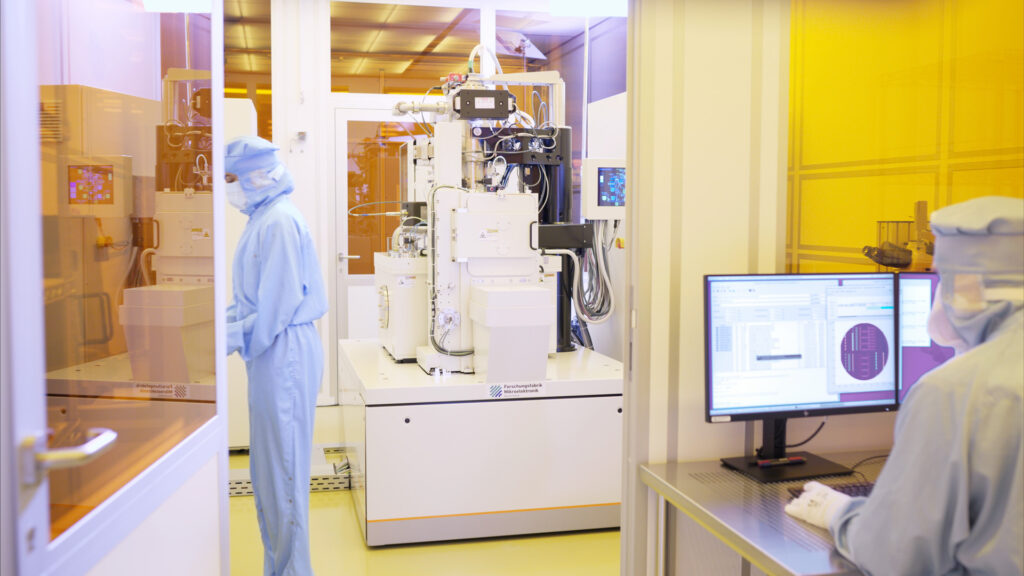Quantum technologies are a key future technology with enormous potential for our society and economy. Their possible applications range from the simulation of new active pharmaceutical ingredients to tap-proof communication. With the new action plan, we want to ensure Germany's position among the world leaders in quantum technologies and secure our technological sovereignty.
Federal Minister of Education and Research Bettina Stark-Watzinger, in the statement on the Federal Government's new "Action Plan for Quantum Technologies"
Computing-intensive technologies and applications, such as artificial intelligence, edge data processing, or the optimization of complex systems, are increasingly pushing traditional digital computers to their performance limits. This is evident, for example, in simulations used in the chemical and pharmaceutical industries for the faster development of new drugs and vaccines, in optimized processes in complex production lines, or road and freight transport. Quantum computing (QC) and neuromorphic computing (NC) offer a promising approach. They are regarded as the foundations for next-generation computing, i.e., for new computing technologies that will be essential for realizing many competitive and security-critical applications in the future.
To bundle and expand the existing microelectronic research and development in Germany concerning quantum computing and neuromorphic computing, the Research Fab Microelectronics Germany (FMD) , together with four other Fraunhofer Institutes, Forschungszentrum Jülich and AMO GmbH, launched a joint project at the end of 2022: The "Research Fab Microelectronics Germany - Quantum and Neuromorphic Computing Modules" (FMD-QNC).

Contributing to the development of the future hardware basis for new computing technologies with "FMD-QNC"
Many basic research projects are currently working on QC and NC in Germany. However, there is still a lack of sufficient opportunities for application-oriented production and testing of the hardware developments required for the highly complex computing technologies and rapid implementation of the results in prototypes and small series. To provide researchers and companies with the best possible support in the development of customized microelectronics and scalable manufacturing and integration processes for new computing technologies, the Research Fab Microelectronics Germany (FMD), already established as a one-stop store for microelectronics and nanoelectronics research, is to be expanded to include the "Quantum and Neuromorphic Computing" (QNC) modules. To this end, for example, the facility parks and various production lines of the partners involved and the range of expertise of the 13 FMD institutes will be expanded by integrating the Fraunhofer Institutes IMWS, IOF, IPM, and ILT as well as Forschungszentrum Jülich and AMO GmbH.
Customized microelectronics production through scalable manufacturing and integration processes for QC and NC
Building on the organizational and cross-site competencies established by FMD, the planned project FMD-QNC can be efficiently and purposefully implemented. In order to create a comprehensive research structure for novel computing technologies at the highest level, the cooperation partners will be equipped gradually and based on demand with design tools, measurement and characterization techniques, as well as manufacturing facilities necessary for the application-oriented research of highly complex QC and NC technologies over the next three years.
The research structures will be networked into industry-oriented research and pilot lines, including superconducting and memristive circuits, 3D system integration, and highly integrated beam sources. As a result, solutions for the sometimes extreme operating environments with high requirements, such as ultra-high vacuum, cryogenic temperatures, or special electromagnetic or thermal shielding or decoupling, will be developed. This will create the process engineering and technological prerequisites for the design, manufacture, and characterization of chips for neuromorphic computing as well as various QC technologies (superconductor-, neutral atom-, ion trap- and solid-state spin-based).





